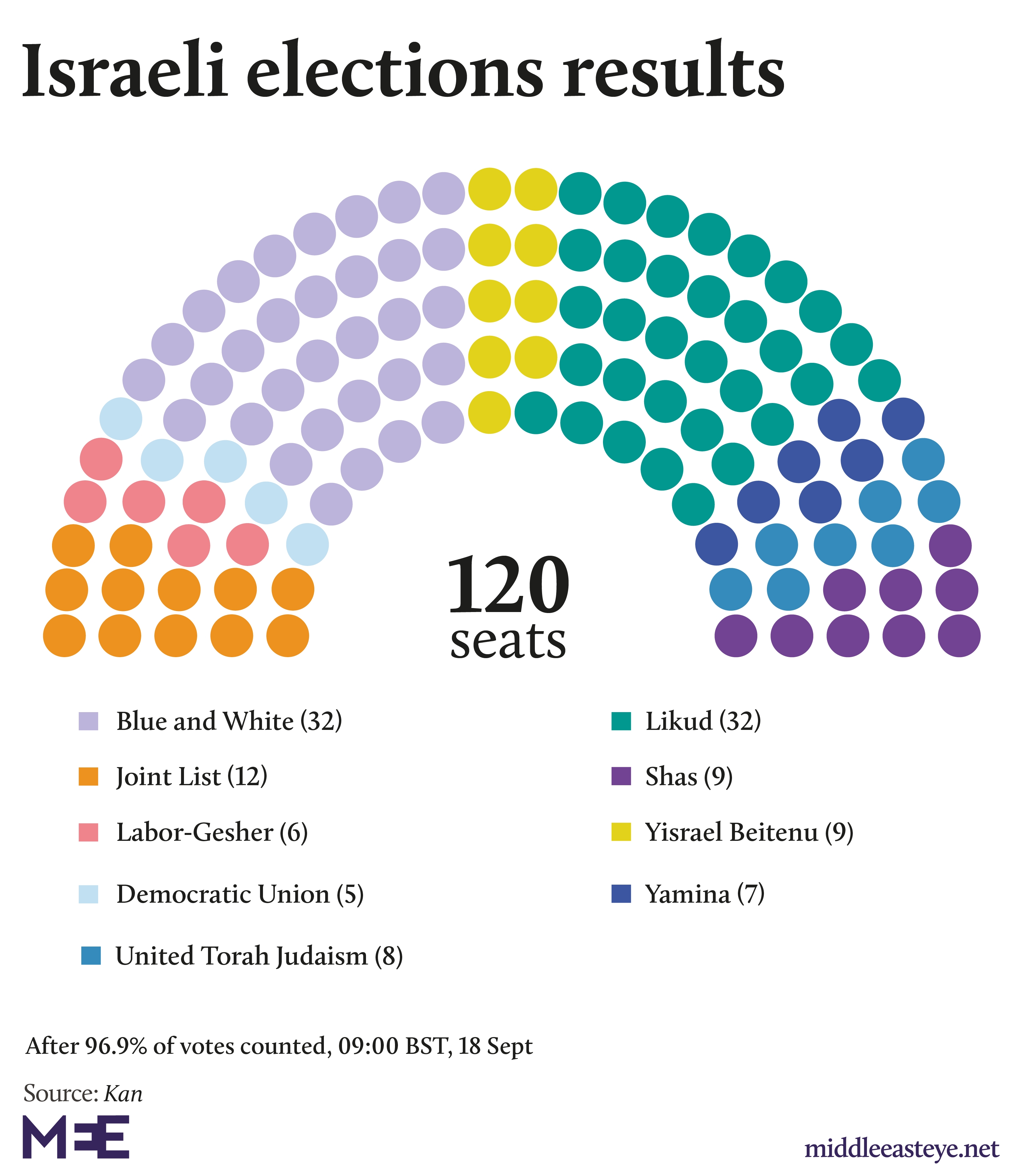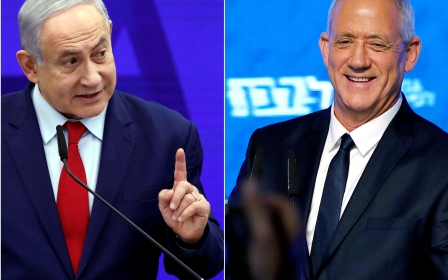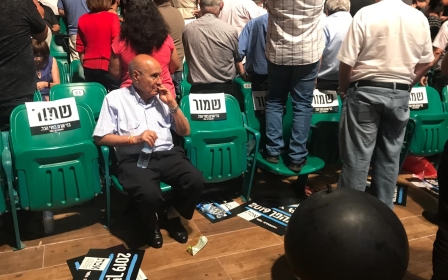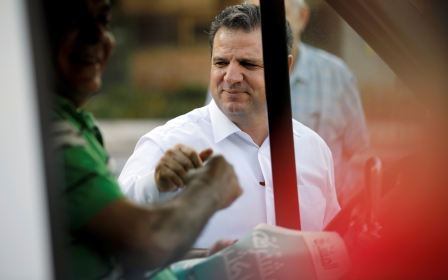Israeli press review: Pre-election Gaza invasion only stopped by legal ruling
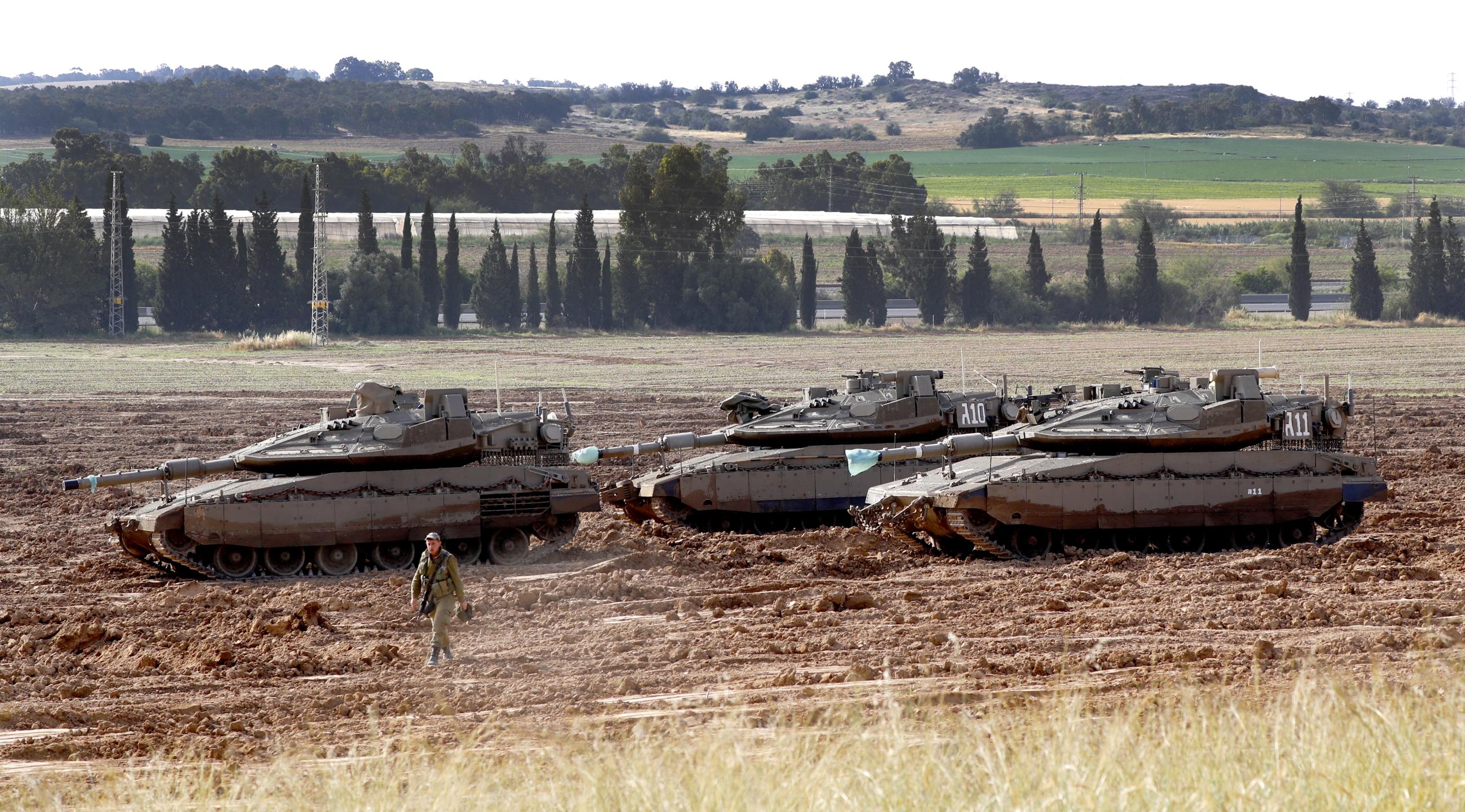
Israel's elections were very nearly interrupted by an invasion of Gaza authorised by Prime Minister Benjamin Netanyahu the day before the polls.
The Ma’ariv newspaper revealed details on how close Israel came to invading Gaza and postponing the elections.
During one of the last campaign speeches given by Netanyahu, rockets fired from the Gaza Strip forced him to seek shelter in the middle of his speech. Opposition leader Benny Gantz mocked Netanyahu as a coward.
In response, Netanyahu announced that an invasion of the Gaza Strip could happen at any moment. He then quickly added that he was prevented from going ahead with the invasion plans because State Attorney Avichai Mandelblit argued that such an attack requires the cabinet's agreement, which can only be made during a physical meeting of the ministers.
It was not until election day that it was revealed that Netanyahu had held a phone conversation with his cabinet, from which the military brass was excluded. The cabinet had approved the invasion, and had also decided that such an invasion was grounds for postponing the elections at the very last minute.
New MEE newsletter: Jerusalem Dispatch
Sign up to get the latest insights and analysis on Israel-Palestine, alongside Turkey Unpacked and other MEE newsletters
Unity speeches all round
Upon reading the exit polls, three political leaders gave speeches calling for a unity government.
Prime Minister Benjamin Netanyahu of the Likud party, Blue and White chairman Benny Gantz and Israel Our Home chairman Avigdor Lieberman held similar speeches calling for “unity” and “forming a stable government.”
Haim Levinson of Ha’aretz newspaper estimated that a unity government including these three parties is the most likely scenario. Failing to form such a government, however, might force Israel to hold elections for the third time in a period of one year.
Gantz has previously said that he will enter a coalition with the Likud and with Beitenu Yizraeli, but not with Netanyahu himself, unless the charges against Netanyahu are dropped.
Members of the Likud party, however, vowed that Netanyahu will continue to lead the party despite the corruption charges.
Joint List could be official opposition
According to the exit polls and the count of over 90 percent of the votes, the Joint List will remain the third biggest party in the Israeli parliament, the Knesset. In the case of a unity government between the two biggest parties, Likud and Blue and White, the Joint List will become the biggest opposition party.
Israeli law stipulates that the chairman of the largest opposition party is considered the “head of the opposition” and enjoys certain privileges: regular security briefings from the prime minister, the right to speak after the prime minister in the Knesset and his own security detail.
As the Joint List is a joint Palestinian-Jewish party (comprised of four smaller parties), chaired by Ayman Odeh, a Palestinian and an Israeli citizen, Nahum Barnea of Yedioth Ahnorot wrote that it is likely that Odeh will become the first Palestinian head of the opposition head in Israel’s history.
Days before the elections, Odeh himself declared his intention to make history by being the first Palestinian to do so.
Israel Today journalist Gideon Alon warned that Odeh as opposition head would be a security threat to Israel because of his opposition to the Israeli occupation and his support to the rights of Palestinian refugees.
Alliance with Ehud Barak dents left appeal?
The Democratic Camp is a union between the left-Zionist Meretz party, the Labor Party's Stav Shafir and Ehud Barak, former Israeli prime minister who has formed his own party called Democratic Israel. According to preliminary election results, the alliance received five seats in the Knesset.
Barak is considered the most right-wing member of the newly formed party. As prime minister, he oversaw the deadly crackdown on a protest by Palestinian citizens of Israel in 2000, in which 13 civilians were killed, in addition to his lethal suppression of the Second Intifada that claimed the lives of thousands.
Within the Democratic Camp, Barak was placed 10th, which means that he will not be a Knesset member. On billboards, however, he was placed prominently as one of the three leaders of the party, alongside party chairman Nitzan Horowitz and Shafir.
The Democratic Camp scraped past the 3.25 percent threshold to enter the Knesset. After the elections, however, members of the party told Ha’aretz that they believe inviting Barak to join was a mistake.
Meron Rapoport wrote in Local Call that Barak took the Democratic Camp to the right, muted the calls within the party to oppose the occupation and drove away leftist voters.
Despite the criticism, Horowitz insisted that joining forces with Shafir and Barak was “the right move”.
* Israeli press review is a digest of reports that are not independently verified as accurate by Middle East Eye.
Middle East Eye delivers independent and unrivalled coverage and analysis of the Middle East, North Africa and beyond. To learn more about republishing this content and the associated fees, please fill out this form. More about MEE can be found here.


